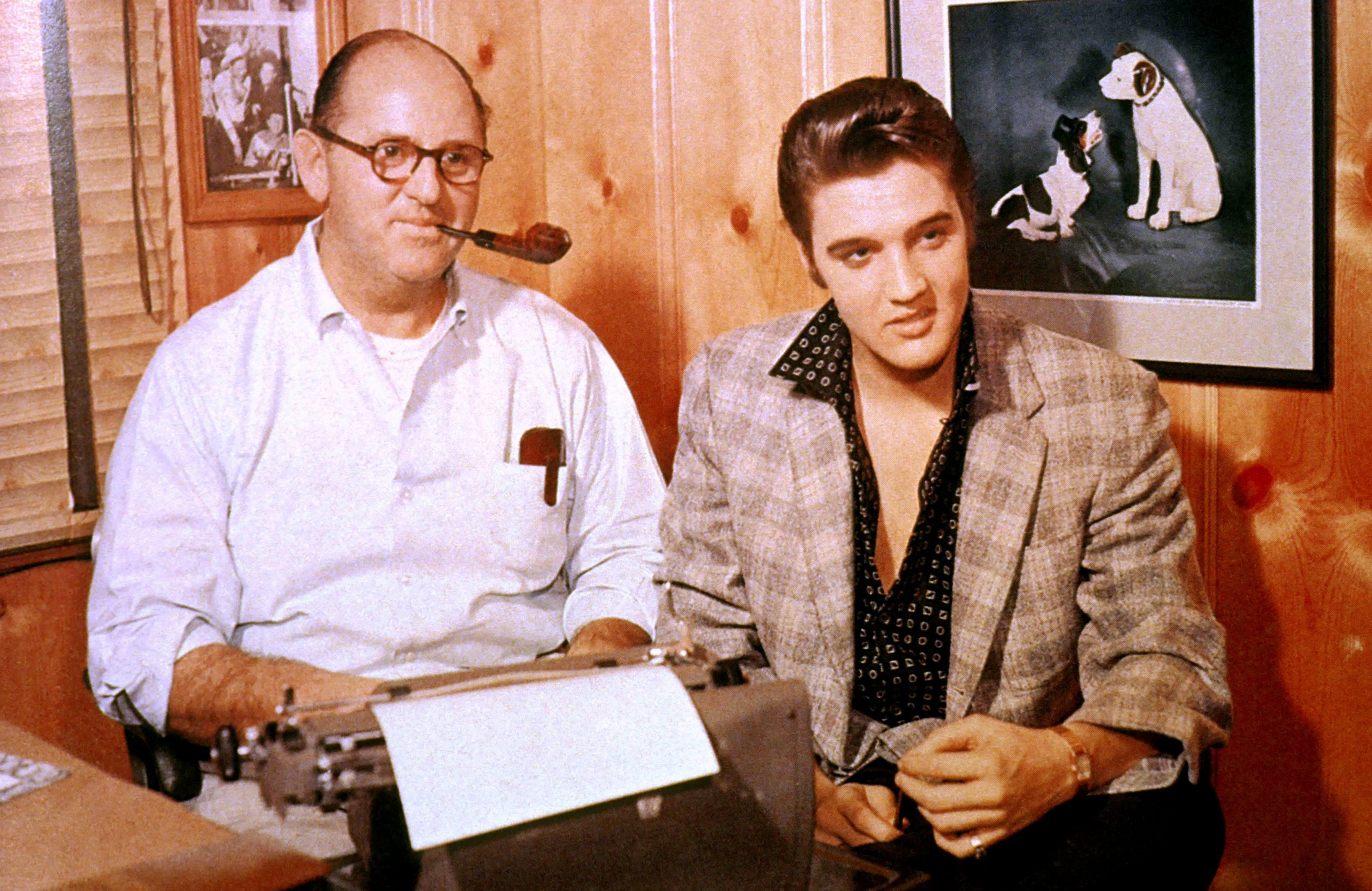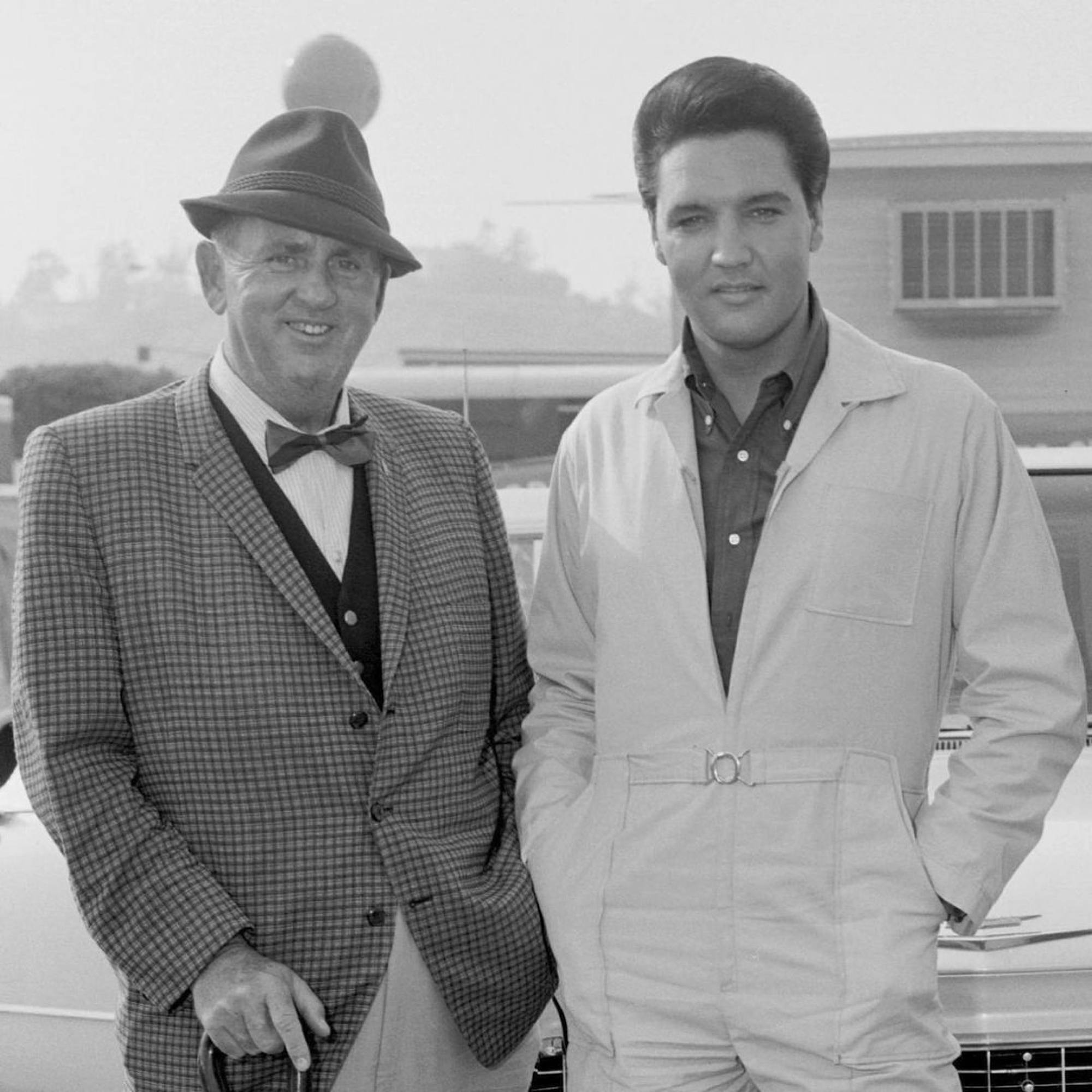Table of Contents
Introduction
Colonel Tom Parker is widely regarded as one of the most influential figures in the history of the music industry, primarily due to his role as Elvis Presley's manager. His strategic decisions and business acumen helped catapult Elvis to global fame, making the "King of Rock and Roll" a household name. However, Parker's legacy is not without controversy, as his management style and financial dealings have been scrutinized over the years. Understanding his impact on Elvis's career requires a deep dive into his life, strategies, and the decisions that shaped the trajectory of one of the most iconic entertainers of all time.
Colonel Tom Parker was more than just a manager; he was a master negotiator, a visionary marketer, and a polarizing figure in the entertainment world. His ability to navigate the complexities of the music and film industries allowed him to secure lucrative deals for Elvis, ensuring his client's place in history. Yet, his methods were often unconventional and, at times, detrimental to Elvis's artistic freedom and financial well-being.
This article explores Colonel Tom Parker's life, his partnership with Elvis Presley, and the strategies that made him both a genius and a controversial figure. By examining his contributions and shortcomings, we can better understand how he shaped Elvis's career and the lasting impact of his decisions on the music industry.
Read also:Hikeru Negi A Comprehensive Guide To The Rising Star
Biography of Colonel Tom Parker
Colonel Tom Parker, born Andreas Cornelis van Kuijk on June 26, 1909, in Breda, Netherlands, immigrated to the United States in the early 1920s. He adopted the name "Tom Parker" and later added the honorary title "Colonel" after being appointed a Kentucky Colonel in 1948. Parker's early life was marked by a series of odd jobs and carnival work, which honed his skills in salesmanship and crowd manipulation.
Parker's career in the entertainment industry began in the 1930s when he worked as a promoter for traveling shows and carnivals. His knack for attracting audiences and generating buzz caught the attention of country music stars, leading him to manage acts like Eddy Arnold and Hank Snow. It was during this time that Parker developed his signature management style, characterized by aggressive negotiation tactics and a focus on maximizing revenue.
Below is a table summarizing Colonel Tom Parker's personal data and career highlights:
| Full Name | Andreas Cornelis van Kuijk |
|---|---|
| Date of Birth | June 26, 1909 |
| Place of Birth | Breda, Netherlands |
| Notable Clients | Eddy Arnold, Hank Snow, Elvis Presley |
| Key Achievements | Managed Elvis Presley's career, negotiated lucrative deals, shaped the music industry |
| Date of Death | January 21, 1997 |
Early Life and Career
Colonel Tom Parker's early life was marked by hardship and resilience. Born into a poor family in the Netherlands, he left home at a young age and eventually made his way to the United States. His initial jobs included working as a carny and a pitchman, where he learned the art of persuasion and crowd control. These skills would later prove invaluable in his career as a music manager.
Parker's entry into the music industry came through his involvement with country music acts. He quickly established himself as a savvy promoter, capable of organizing successful tours and securing profitable contracts. His work with Eddy Arnold and Hank Snow laid the foundation for his future success and introduced him to the world of music management.
One of Parker's defining traits was his ability to adapt to the changing landscape of the entertainment industry. As the popularity of country music grew, he recognized the potential of crossover artists who could appeal to a broader audience. This insight would later drive his decision to manage Elvis Presley, whose unique blend of rock, country, and rhythm and blues was poised to revolutionize the music scene.
Read also:Miaz 1234 Grithmaster A Comprehensive Guide To Mastering The Art Of Precision And Innovation
The Partnership with Elvis Presley
Colonel Tom Parker's partnership with Elvis Presley began in 1955, shortly after Elvis's rise to fame with hits like "That's All Right" and "Blue Moon of Kentucky." Parker saw immense potential in Elvis's charisma, talent, and appeal to a diverse audience. He negotiated a deal to become Elvis's exclusive manager, taking a 25% commission on all earnings—a standard rate at the time.
Under Parker's management, Elvis's career skyrocketed. Parker orchestrated a series of strategic moves, including securing lucrative recording contracts, organizing nationwide tours, and negotiating deals for Elvis's appearances on television and in films. These efforts transformed Elvis into a global superstar and solidified his status as a cultural icon.
However, Parker's management style was not without its flaws. While he excelled at generating revenue, his focus on commercial success often came at the expense of Elvis's artistic freedom. Parker prioritized projects that guaranteed financial returns, such as formulaic Hollywood films, over ventures that might have allowed Elvis to explore his creative potential.
Film Deals and Television Appearances
One of Parker's most significant achievements was his ability to secure high-profile film deals for Elvis. Movies like "Love Me Tender" and "Jailhouse Rock" not only boosted Elvis's fame but also generated substantial profits. Parker's negotiation skills ensured that Elvis received top billing and favorable contracts, further cementing his status as a box office draw.
Parker also capitalized on the growing popularity of television by arranging Elvis's appearances on shows like "The Ed Sullivan Show." These performances reached millions of viewers and played a crucial role in establishing Elvis's image as the "King of Rock and Roll." Parker's understanding of media trends allowed him to maximize Elvis's exposure and influence.
Parker's Management Strategies
Colonel Tom Parker's management strategies were both innovative and controversial. He employed a variety of tactics to ensure Elvis's commercial success, including aggressive marketing, strategic partnerships, and meticulous financial planning. His approach was driven by a singular focus on maximizing revenue, often at the expense of artistic considerations.
One of Parker's key strategies was his emphasis on live performances and tours. He recognized the importance of connecting with fans in person and organized extensive tours that spanned the United States and beyond. These tours not only generated significant income but also helped build a loyal fan base for Elvis.
Parker also leveraged merchandising opportunities to further monetize Elvis's fame. From records and posters to clothing and memorabilia, he ensured that Elvis's brand was omnipresent. This approach not only increased Elvis's earnings but also solidified his status as a cultural phenomenon.
Merchandising and Branding
Parker's approach to merchandising was ahead of its time. He understood the value of branding and worked tirelessly to ensure that Elvis's image was consistently promoted across various platforms. This included licensing deals for Elvis-themed products, which generated additional revenue streams and kept Elvis's name in the public eye.
Despite his success, Parker's strategies were not without criticism. His focus on commercial gain often led to decisions that limited Elvis's creative freedom. For example, Parker's insistence on formulaic Hollywood films and his reluctance to allow Elvis to tour internationally restricted the artist's ability to explore new opportunities and expand his artistic horizons.
Controversial Decisions
Colonel Tom Parker's management of Elvis Presley was marked by several controversial decisions that have been the subject of debate among fans and historians. One of the most significant controversies was Parker's refusal to allow Elvis to tour internationally. Despite Elvis's global popularity, Parker cited concerns about his own immigration status and potential tax liabilities as reasons for limiting Elvis's performances to the United States.
Another contentious issue was Parker's insistence on Elvis starring in a series of formulaic Hollywood films. While these movies were financially successful, they often lacked artistic merit and failed to showcase Elvis's full range of talents. Critics argue that Parker's focus on box office returns stifled Elvis's creativity and prevented him from pursuing more meaningful projects.
Parker's financial dealings have also come under scrutiny. His 25% commission on Elvis's earnings, combined with his control over the singer's finances, raised questions about whether Elvis received a fair share of his income. Some have accused Parker of prioritizing his own financial gain over Elvis's long-term well-being.
Financial Impact on Elvis
Colonel Tom Parker's management had a profound impact on Elvis Presley's financial situation. On the one hand, Parker's strategies generated immense wealth for Elvis, making him one of the highest-paid entertainers of his time. On the other hand, Parker's control over Elvis's finances and his high commission rate left the singer financially vulnerable in his later years.
Parker's insistence on maintaining a tight grip on Elvis's earnings meant that the singer had limited access to his own money. This financial control, combined with Elvis's extravagant spending habits, contributed to his financial difficulties later in life. Despite his immense fame and success, Elvis often found himself struggling to manage his finances effectively.
Additionally, Parker's reluctance to explore new revenue streams, such as international tours or innovative recording projects, limited Elvis's earning potential. While Parker's decisions ensured short-term profits, they may have hindered Elvis's ability to build a more sustainable and diversified career.
Legacy and Criticism
Colonel Tom Parker's legacy is a complex and often polarizing topic. On one hand, he is credited with transforming Elvis Presley into a global icon and revolutionizing the music industry. His innovative marketing strategies and business acumen set new standards for artist management and paved the way for future generations of entertainers.
On the other hand, Parker's management style has been heavily criticized for its lack of transparency and its focus on short-term gains. Many argue that his decisions stifled Elvis's creativity and contributed to the singer's financial and personal struggles. Parker's refusal to allow Elvis to tour internationally and his insistence on formulaic Hollywood films are often cited as examples of his shortcomings as a manager.
Despite these criticisms, Parker's impact on the music industry cannot be denied. His ability to navigate the complexities of the entertainment world and secure lucrative deals for Elvis remains a testament to his skills as a manager. Whether viewed as a visionary or a controversial figure, Colonel Tom Parker's influence on Elvis Presley's career is undeniable.
Data and Statistics
To better understand Colonel Tom Parker's impact on Elvis Presley's career, it is helpful to examine some key data and statistics. These figures highlight the financial success of Elvis's career under Parker's management and provide insight into the scale of his influence on the music industry.
- Elvis Presley sold over 1 billion records worldwide, making him one of the best-selling music artists of all time.
- Parker negotiated a record-breaking deal with RCA Victor in 1955, securing Elvis a $40,000 advance—the equivalent of over $400,000 today.
- Elvis starred in 33 films during his career, many of which were orchestrated by Parker to maximize box office returns.
- Parker's management generated an estimated $1.5 billion in revenue for Elvis over the course of his career.
- Elvis's estate continues to generate millions of dollars annually through licensing deals and merchandise, a testament to Parker's branding strategies.
Conclusion
Colonel Tom Parker's role in shaping Elvis Presley's career is both remarkable and controversial.

